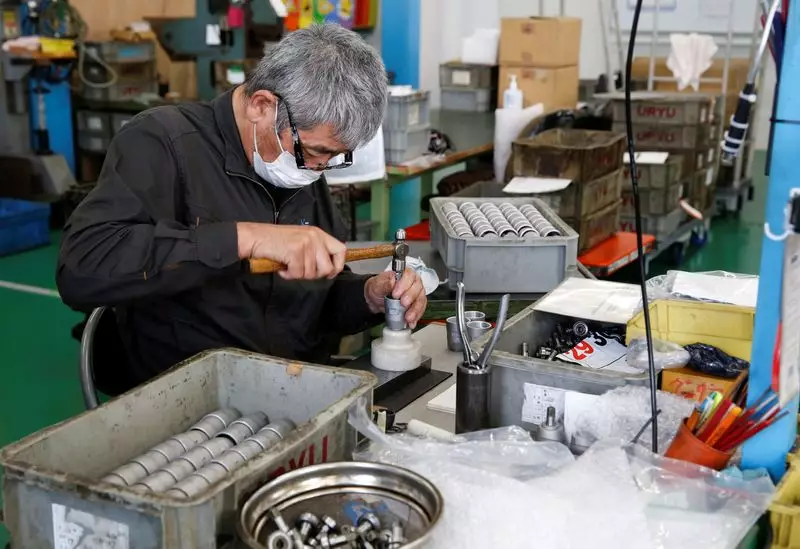Recent data from a central bank survey in Japan shows that while big manufacturers are feeling more confident than they have in over two years, the service sector is facing challenges due to rising costs. The weak yen has been a key driver of these increased costs, leading to a mixed economic outlook in the country. This discrepancy in confidence levels poses a challenge for the Bank of Japan as it navigates its monetary policy decisions.
The survey revealed that while big manufacturers reported a positive sentiment index in June, service-sector firms showed a decline in confidence compared to three months ago. The rising costs of labor, combined with high imported raw material prices, are putting pressure on service-sector companies. This drop in sentiment is a cause for concern, indicating potential challenges ahead for these businesses.
The Bank of Japan’s upcoming policy meeting on July 30-31 will be crucial in determining the next steps for the country’s monetary policy. Analysts are divided on whether the central bank will opt for an early rate hike or hold off due to the mixed economic outlook. While corporate inflation expectations have increased slightly, the overall sentiment in the service sector remains subdued, making the decision more complex for policymakers.
In addition to the survey results, Japan recently revised its historical gross domestic product (GDP) data, revealing a sharper contraction in the economy than previously reported. The downward revision for the first quarter of the year signals additional challenges for the central bank in meeting its growth forecasts. These revised figures are likely to impact the BOJ’s decision-making process at the upcoming policy meeting.
Despite the challenges faced by businesses in Japan, long-term corporate inflation expectations have seen a slight increase. Companies are projecting inflation to reach 2.3% in three years and 2.2% in five years. This reflects a cautious optimism about the future inflation landscape in the country, despite the current economic uncertainties.
The path to future rate hikes remains uncertain, with market players expecting the Bank of Japan to raise interest rates from near-zero levels this year. However, the timing of these rate hikes is still a point of contention among analysts. BOJ Governor Kazuo Ueda has emphasized the importance of evidence-based decision-making, indicating that rate hikes will depend on sustained progress towards the 2% inflation target.
The rising costs driven by the weak yen are having a significant impact on Japanese business sentiment, with manufacturers showing more confidence than their service-sector counterparts. The upcoming policy decisions by the Bank of Japan will be crucial in determining the direction of the country’s monetary policy and its response to the challenging economic environment. It is clear that a delicate balance needs to be struck between supporting growth and managing inflation in the face of rising costs.

